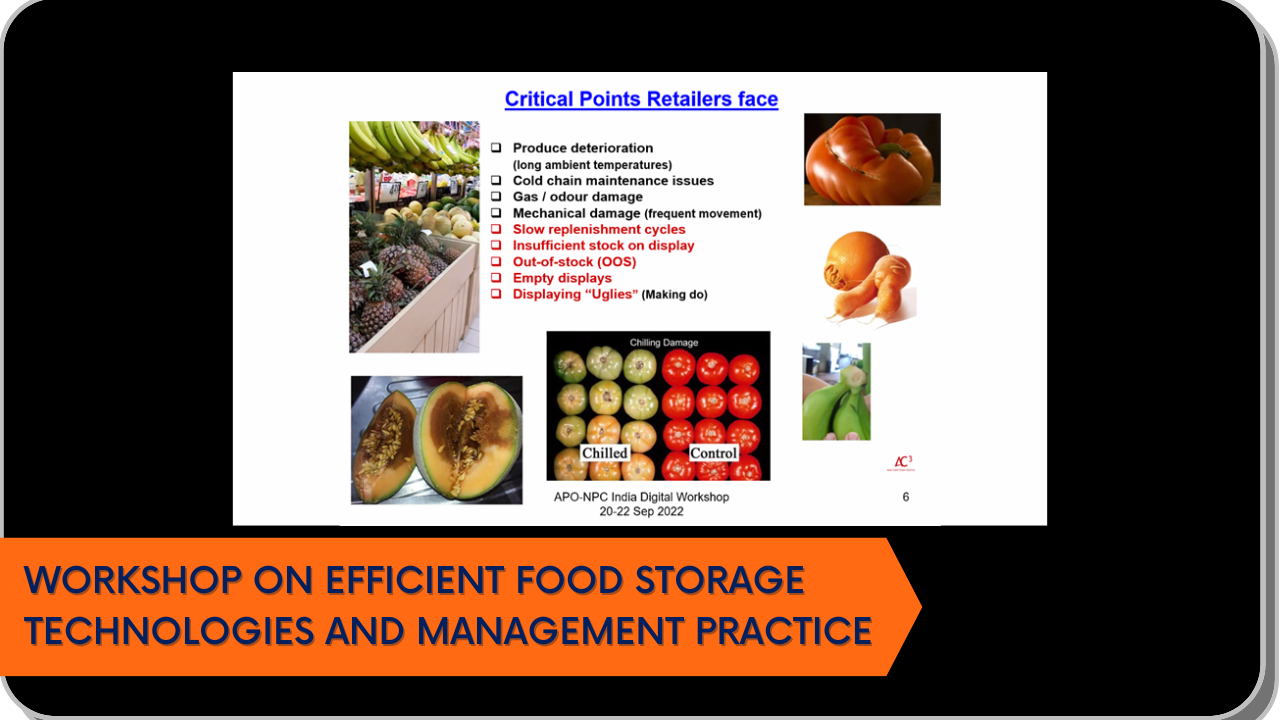
Select Page

The National Productivity Council, India, and Asian Productivity Organization (APO) Secretariat organized a digital multicountry workshop on Efficient Food Storage Technologies and Management Practices, 20–22 September. It introduced the causes and mechanisms of agrifood product deterioration and how to prevent it based on the characteristics of fresh food types. Fifty participants from 12 APO members attended the workshop, along with resource persons from India, Japan, and Singapore who shared information on efficient storage technologies to maintain fresh food quality.
With an expanding middle class and increased per capita income, there has been a shift in demand from quantity to fresh, safe food. Maintaining food freshness and safety also adds value and reduces losses for agribusinesses. As most agricultural products are perishable, their quality starts deteriorating immediately after harvest due to respiration, water loss, insect pests, and diseases. According to a 2020 UN report, around 14% of food was lost postharvest before reaching retailers in 2016.
Modern food storage technologies, however, can help maintain quality throughout food value chains (FVCs) and reduce postharvest food losses. Efficient FVCs are therefore important for food storage management and contribute to increasing the incomes of stakeholders involved.
The APO workshop focused on the impact of environmental conditions on fruit and vegetable quality, challenges of managing the dynamics of current supply flows for food security, and packaging technologies for the preservation of fresh produce. It also shared information on efficient management practices for food storage, approaches to managing the balance between demand and forecasting with planned inventory flows, scientific methods to store food grains in commercial warehouses, and the role of moisture, temperature, and humidity in grain storage.